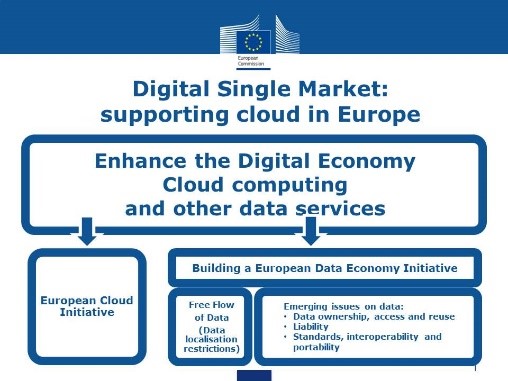EUROPEAN COMMISSION’S DORA PROPOSAL (2020): EBF POSITION
CLOUD ADOPTION BY EUROPEAN BANKS
EBF CLOUD BANKING FORUM
EBF CLOUD BANKING FORUM: TECHNICAL PAPERS
CLOUD INITIATIVES OF EU INSTITUTIONS
#EBFCLOUD EVENTS!
EBF DIGITAL THURSDAYS 2021
Competing in Digital Finance: New rules for a new market
Thursday, 4 November 2021
x
WATCH THE FULL EVENT
The second Digital Thursday 2021 focused on the evolving competition landscape in digital financial services and the challenges this poses to the ongoing digital transformation of banking and banks. Access to relevant infrastructure and data, as well as the supervisory framework are key enablers to innovation. The event discussed the importance of ensuring fair competition among participants in the digital market and will offer exchange of views on some of the key policy debates such as the Digital Markets Act, access to and sharing of data, and the role Digital ID can play in this shifting landscape.
EBF DIGITAL THURSDAYS 2020
Evolution in financial services: tomorrow’s technology in today’s framework?
Thursday, 12 November 2020
x
WATCH THE FULL EVENT
Financial services experience an unprecedented digital transformation, with the technology-driven evolution of products, services, and available infrastructure. Innovation offers the exponential potential to serve customers and advance business operations. At the same time, European banks approach such innovation with a commitment to existing regulatory responsibilities and a commitment to financial stability in Europe.
The EBF’s Innovation & Cyber Thursday on 12 November 2020 shined the light on the importance of an appropriate framework for banks to grasp the innovative potential offered by technology while abiding by today’s rules. Where both come together, the financial industry requires options to safely advance innovative solutions at scale. Digital operational resilience lies at the heart of these solutions, requiring 360⁰ attention to changing roles of different parties involved in the ICT landscape. The event looked at European advancement of regulation for digital operational resilience, established and aspired partnerships to implement innovative technology and the global perspective for safeguarding innovation in finance.










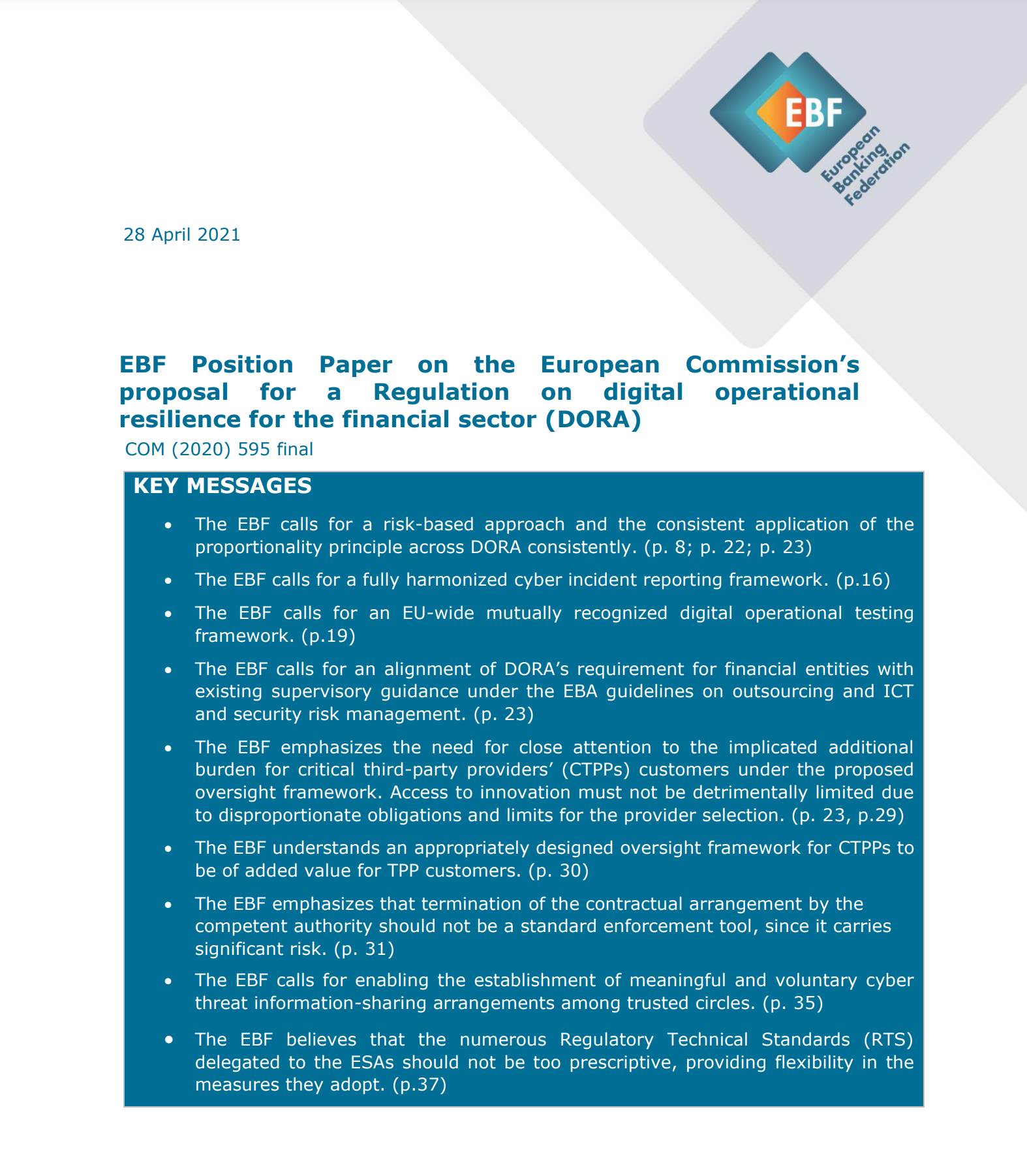

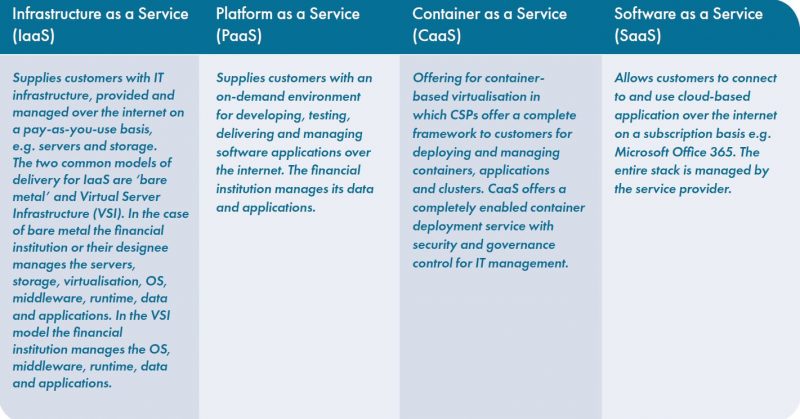
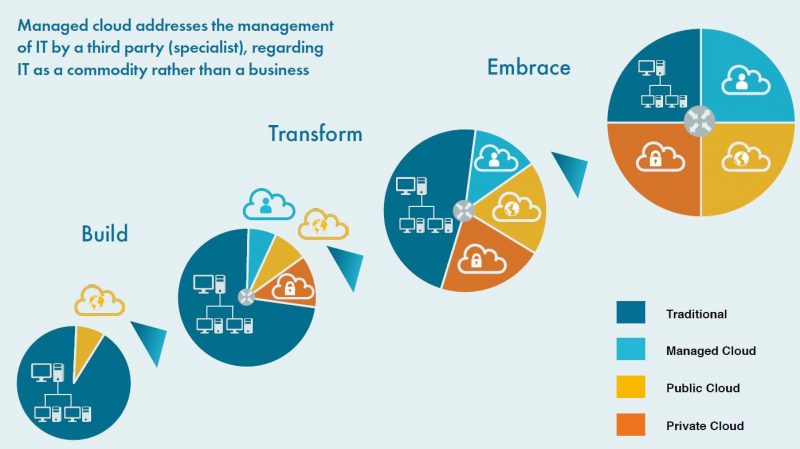
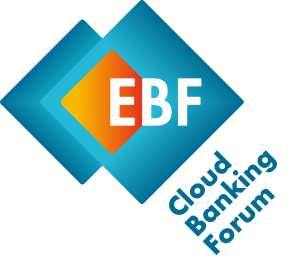


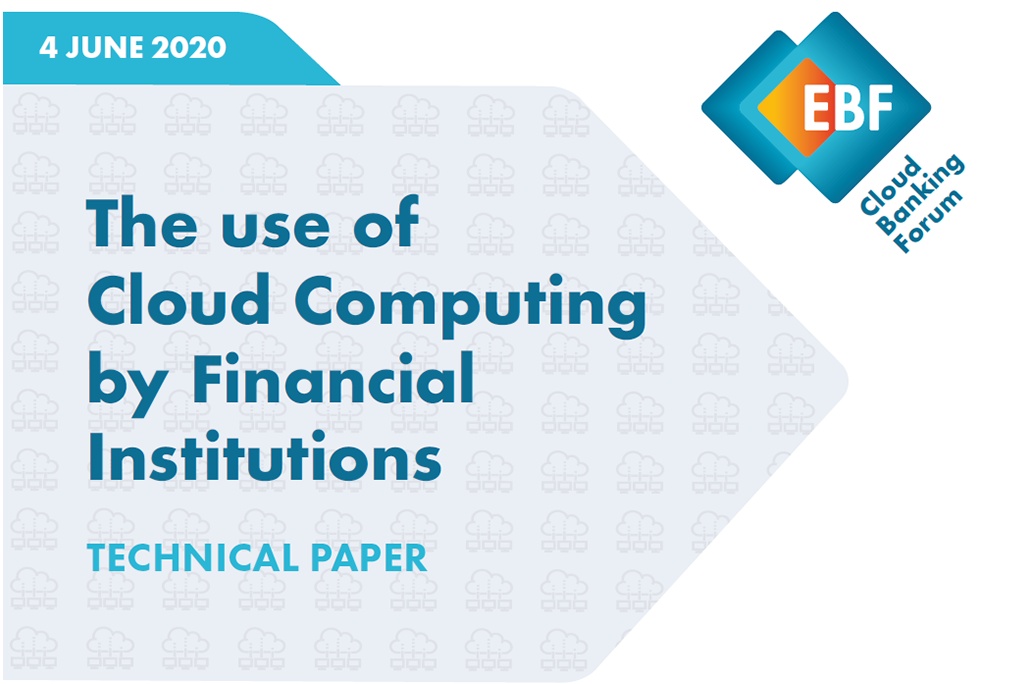

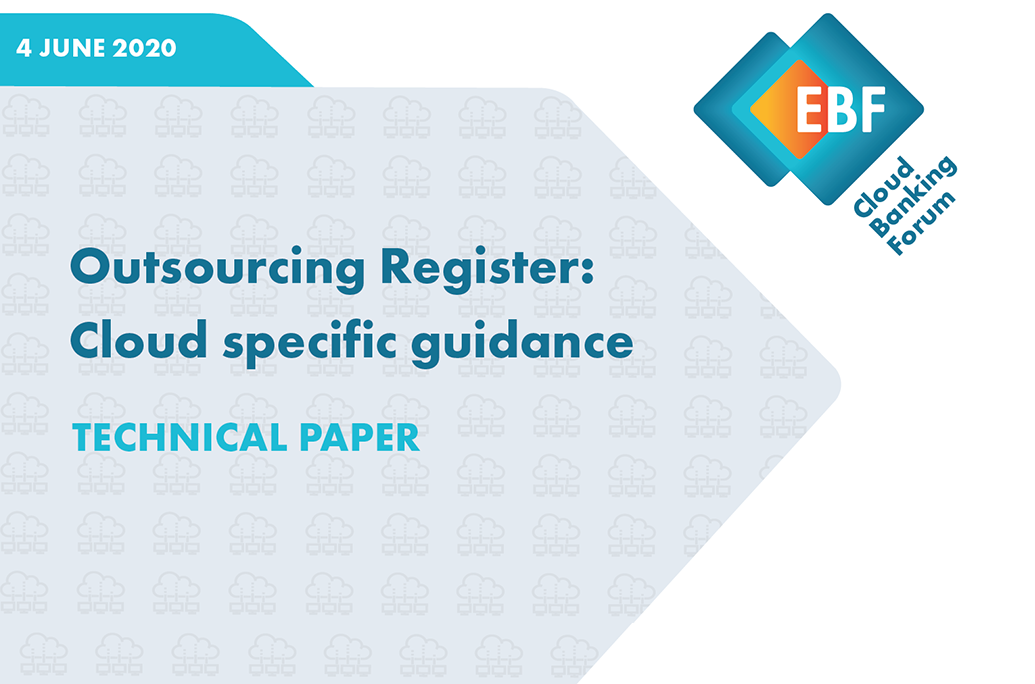


 of the European cloud market from €9.5bn in 2013 to €44.8bn by 2020, i.e. almost five times the market size in 2013. Within the Digital Single Market Strategy for Europe, the key role of cloud computing is established through the European Cloud Initiative and through the initiative on Building a European Data Economy.
of the European cloud market from €9.5bn in 2013 to €44.8bn by 2020, i.e. almost five times the market size in 2013. Within the Digital Single Market Strategy for Europe, the key role of cloud computing is established through the European Cloud Initiative and through the initiative on Building a European Data Economy.